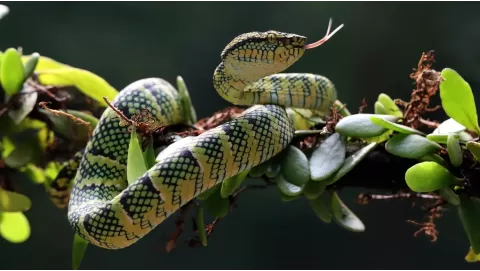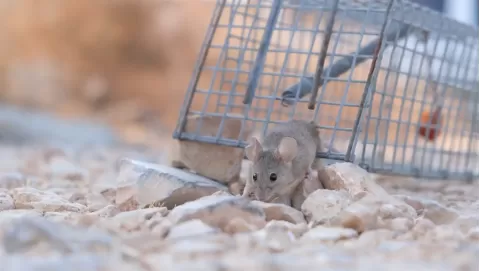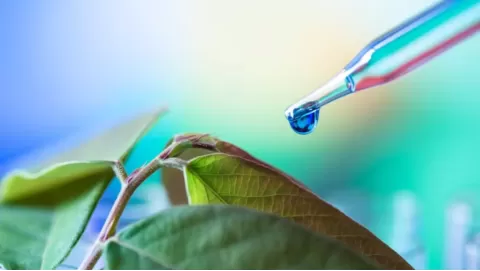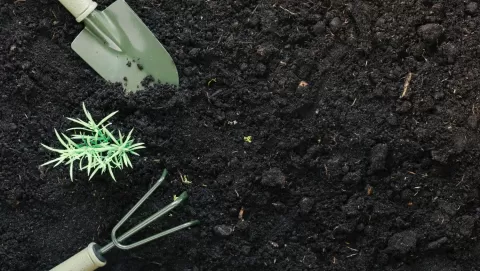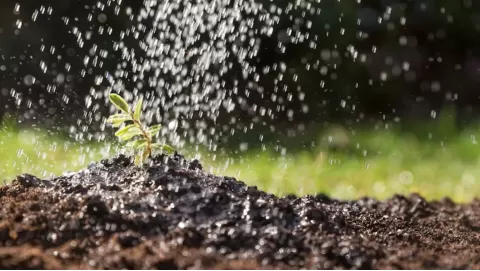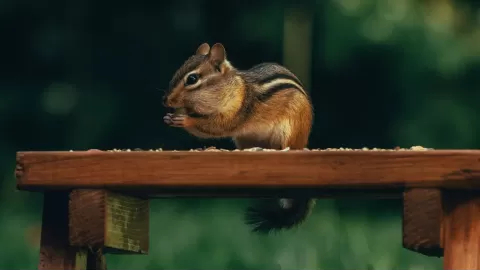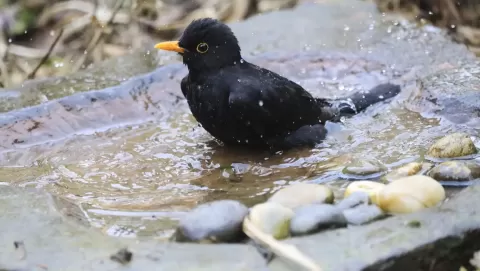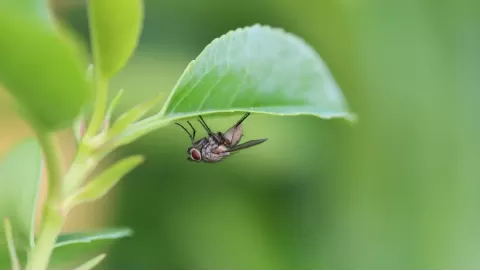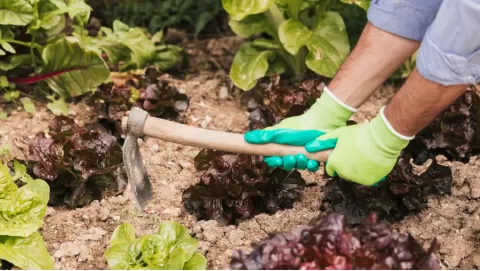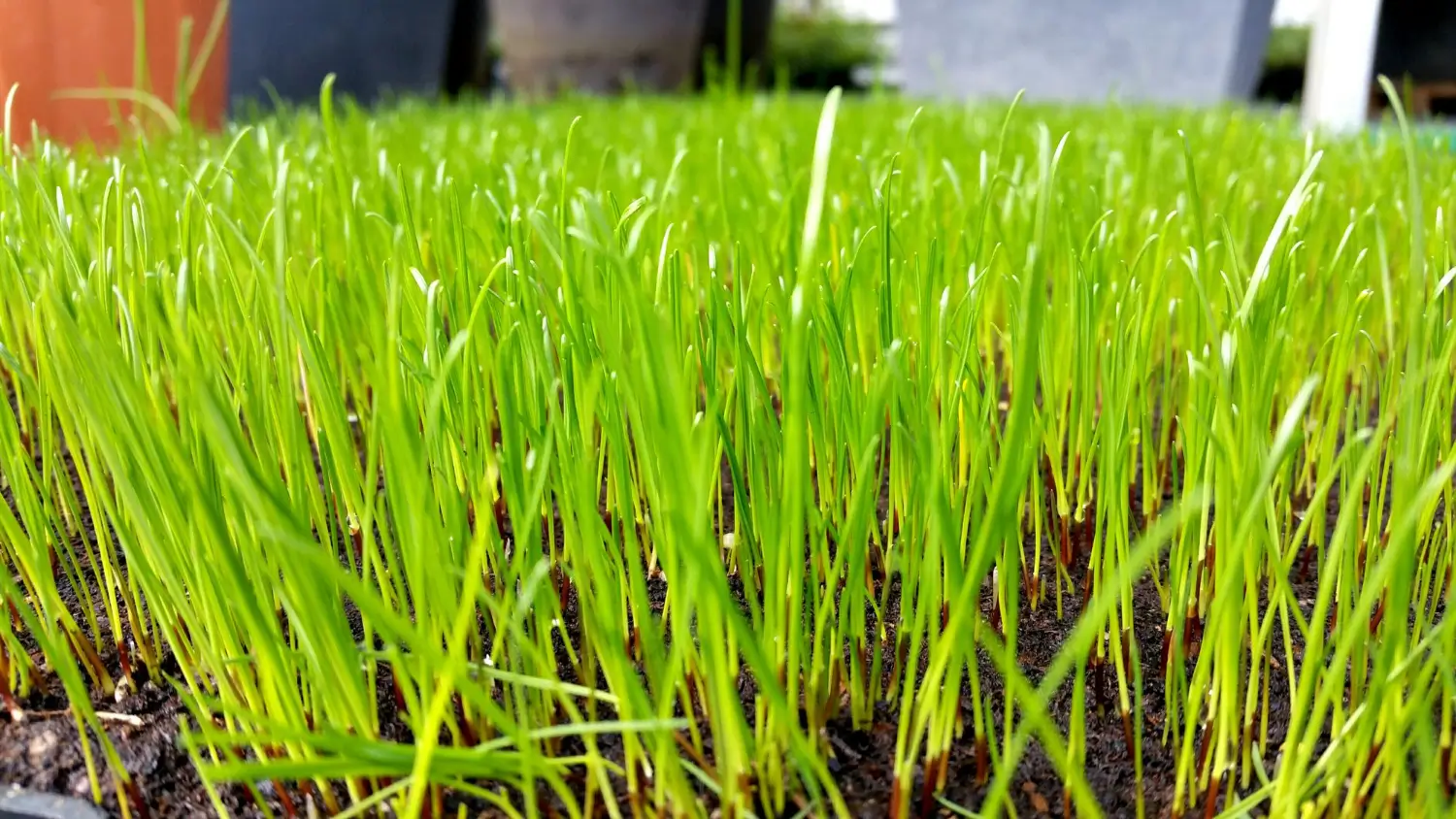
The complete guide to bermuda grass seed: Tips for a hardy, low-maintenance lawn
Bermuda grass is one of the most widely used grasses for lawns, sports fields, and golf courses. Bermuda grass has the ability to withstand heavy foot traffic and thrive in hot conditions. It's healthy, vigorous growth fills the soil and will form a thick mat that is weed-resistant. To choose one in a perfect condition is a low-maintenance option for homeowners and gardeners.
- What: Bermuda grass is a warm-season grass prized for its durability and ability to thrive in hot, sunny climates.
- Ideal Growing Conditions: Grows best in full sun with well-draining soil and tolerates drought once established.
- Key Benefits: High resilience to foot traffic, rapid growth, and low maintenance once rooted.
- Types: Common varieties include Sahara, Princess 77, and Blackjack, each offering unique textures and growth rates.
- Best For: Lawns in hot climates, sports fields, and high-traffic areas.
- Considerations: Requires occasional dethatching, regular mowing, and fertilization for optimal growth.
One of the most commonly used grasses for yards is Bermuda grass, known for its lush green color, ability to withstand weeds, and foot traffic. If you are starting a Bermuda grass lawn from seed, this is an inexpensive method to create a new lawn or revitalize an old one. But this process needs proper planning and implementation to succeed. Selecting the right Bermuda grass seed variety for specific temperature and soil type is essential.
Growcycle provides high-quality Bermuda grass seeds that result in thick, green yards. Gardeners can find high-quality seeds, along with plenty of easy-to-understand tips on how to grow and maintain Bermuda grass.
Bermudagrass (Cynodon dactylon) is a warm-season grass that is tolerant of heat, drought, and substantial wear. It produces a dense, tough, and handsome turf, so it's often employed for lawns, golf courses, sports fields, and pastures. Bermuda grows in warm climates and is tolerant of drought and heat.
This grass grows by means of stolons (as well as rhizomes), and with establishment, it develops into a very dense and lush foot carpet quickly. Its thick, green blades make a soft, fluffy surface that is ideal for relaxing on a sunny day or playing a game of sports. Because of its dense growing habit that allows it to recover from damage, it's ideal for high-traffic areas.
Characteristics of Bermuda Grass
Bermuda grass has unique features that make it a favorite option for many lawns.
- Because they are soft and smooth underfoot, their slender leaves allow for enjoyable barefoot play and activities.
- The lush green color of this grass is quite appealing, and it can make gardens and yards appear very lively.
- Another excellent characteristic of Bermuda grass is its strength. If it gets damaged with many people walking on it or an insect, it can heal well.
- The roots grow deep, allowing it to weather dry periods with limited rainfall, which makes it an ideal choice for areas with water restrictions.
- This grass variety, which is hardy in warm sunny regions (USDA zones 7–13), has better heat and drought tolerance than many other grasses.
- Bermuda grass tolerates many soil types but grows healthiest in well-drained sandy soils.
- It prefers slightly acidic to neutral soil pH, ranging from 5.8 to 7.0, but is capable of growing in more acidic conditions if necessary.
Different Varieties of Bermuda Grass Seed
Bermudagrass seed comes in several different varieties, each with its own features that help it thrive in various climates, soils, and applications. Here are some popular varieties:
Common Bermuda Grass
Common Bermuda (Cynodon dactylon)is the original variety of Bermuda grass, very hardy and adaptable to many soil types. Though it has a coarser texture than hybrid types, it is hardy for use on general-purpose lawns, pastures, and erosion control. Common bermudagrass is low maintenance and can flourish in less than ideal soils, making it a good choice for many landscapes.
Arden 15 Bermuda Grass
Arden 15 Bermuda germinates and establishes fast, which is why it's a favorite for high-end residential lawns, golf course fairways, and athletic fields. It is fine-textured and dense, dark green in color. Its rapid establishment and heat and drought tolerance mean a lovely, resilient lawn is just a short wait away.
Princess 77
Princess 77 Bermuda is a premium, hybrid type variety that produces a dense and fine-textured turf. Princess 77, known for its bright green foliage and drought and high-temperature resistance, is a popular choice for golf courses, athletic fields, and premium lawns. Its hardiness and polished appearance make it perfect for spaces that need a touch of greenery that looks cared for.
Yukon Bermuda Grass
Yukon Bermuda — a seeded cultivar bred for the cooler winters of northern climates. Specializing in transitional zones, it is actually a great option for lawns and sports fields in zones where other Bermuda varieties might fail. Yukon has a delicate leaf texture and good disease resistance; it stays greener longer into the fall, maintaining its color better than other types of Bermuda in cooler temperatures.
Sahara Bermuda Grass
Sahara Bermuda is a seeded type bred specifically for drought tolerance and durability. It flourishes in warm, dry climates and is commonly used for residential lawns, parks, and playing fields. Sahara Bermuda has a medium to fine leaf texture and thrives in high temperatures with low maintenance, making it a great option for dry, sunny spots.
Benefits of Bermuda Grass
There are many advantages of using Bermuda grass which is the reason it is widely used in lawns, sports fields, golf courses, and pastures. It also offers several advantages, including:
Drought Tolerance
One of the biggest advantages of Bermuda grass is its outstanding drought tolerance. It has a deep root system that gives it access to moisture in the deeper layers of soil and keeps it green and healthy in periods of low rainfall.

Unlocking the secrets to healthy garden soil: Tips and techniques for a thriving garden
Any garden needs healthy soil to survive. It gives essential nutrients, aids in water retention for roots, and creates a steady atmosphere for growth. Plants need healthy soil to flourish and bloom.
LEARN MORE →Weed Resistance
Bermuda grass has a growth habit that is very dense which helps it compete with weeds. This feature minimizes the frequency of herbicide application, which in turn relaxes maintenance requirements and aids in sustaining a healthy outdoor ecosystem.
Low Maintenance
Bermuda grass needs little maintenance once it's established. It is ideal for warm, dry climates and requires less water than other grasses. A little bit of mowing, a sprinkle of fertilizer, and it thrives.
Heat Tolerance
Bermuda grass is also heat-resistant, making it ideal for hot climates, in addition to drought resistance. Its heat tolerance allows it to thrive in hotter environments, making it a dependable plant for southern and transitional zones.
Fast Growing
One of the best features of Bermuda grass is that it is known to grow extremely rapidly, creating a thick and luscious lawn in less time than most other grasses. This rapid growth is a good thing because it helps the grass to fill in bare spots in the lawn and spread into new areas. The quick growth of Bermuda grass allows it to take root in areas where other grasses might not, promising a lush, green lawn.
Factors for Choosing the Right Bermuda Grass Seed
There are some factors which every gardener has to take care of while the selection process of Bermuda grass seed:
- Climate Adaptability
When selecting Bermuda grass seed, consider the area's climate. Choose a variety well-suited to local temperatures and weather conditions, whether for hot, arid regions or cooler transition zones.
- Sunlight Requirements
Bermuda grass likes full sun, but some varieties tolerate partial shade. Check the sunlight exposure of the area where you plan to plant, to make sure the seed variety you select will thrive.
- Budget
Cost can be an important consideration when buying Bermuda grass seed. Common varieties might be less expensive; hybrids might be upgrades for a remarcably higher price. Evaluate the budget and prioritize features that support the gardening objectives.
- Availability
Make sure suppliers have the seeds gardeners are interested in. At the same time, some more specialized hybrids may be harder to find, which could affect the decision on the correct seed for garden use.
How to Prepare and Plant Bermuda Grass Seed: A Step-by-Step Guide
Follow this step-by-step process on how to get Bermuda grass seeds ready and plant them to grow a nice and green lawn.
1. Clear the Area
Clear away grass, weeds, rocks and debris. If stubborn weeds remain, use an herbicide a few weeks before planting. Just make sure you give the herbicide enough time to dissipate before seeding. Rake the area thoroughly to remove any remaining plant material and ensure a clean surface.
2. Loosen the Soil
Loosen the top 6–8 inches of soil using a tiller or garden rake. This makes it easier for Bermuda grass roots to take hold, letting them absorb more water and nutrients. If it packs, you might want to aerate to improve drainage and root growth.
3. Test the Soil
Conduct a soil test to check the pH level and nutrient levels. Bermuda grass thrives in slightly acidic to neutral soil (pH 5.8 to 7.0). If the soil is too acidic, amend it with lime; if it’s too alkaline, with sulfur, based on the test results. Plus, apply any suggested/needed fertilizers or nutrients to enhance the encountered soil quality.
4. Add Soil Amendments
Mix compost or topsoil to improve the texture and average of the dirt if it's low in organic matter. In natural soils, decomposing matter adds to moisture and nutrient elements, while enabling seeds to sprout. Soil preparation is done by raking it and making it a smooth surface. Get rid of any big clumps or rocks that could keep seeds from making contact with the soil.
5. Level the Soil
Level the soil and use a lawn roller or rake to make sure that it is smooth. This prevents water from collecting in low lying areas, preventing germination and even growth. Gently compress the soil together, but don’t overpack, as this can prevent seeds from being able to dig in.
6. Apply Fertilizer
Use a phosphorus-rich starter fertilizer to encourage healthy root growth of Bermuda grass seedlings. Apply the fertilizer evenly on top of the soil surface according to the recommended rate on the label.
7. Plant the Bermuda Grass Seed
Spread the seeds evenly across prepared soil using a broadcast spreader. For even spreading, apply half of the seeds one way, and half of them at a right angle. For best coverage, use a seeding rate of 1 – 2 lbs./1,000 sq.
8. Lightly Rake and Press the Seeds
Rake lightly over the area to work the seeds into the top 1/4 inch of soil. Be careful about planting them too deeply — like the seeds of many grass species, Bermuda grass requires light for germination. This is so important for successful germination, so use a roller to press the seed well into the ground to ensure good seed-to-soil contact.
9. Water Regularly
Water the area you have seeded lightly and often, keeping the topsoil wet. Do not over-water, which may wash seeds out. When seeds start to sprout (usually in 7–14 days), lessen how often you water, but water more deeply to encourage roots to go deeper.
10. Maintain the Area
Avoid foot traffic on a lawn until the grass has fully established, as this can be a process of between 6–8 weeks. Now, for the first time (when grass is about 1.5 inches tall), try to avoid cutting off more than one-third of the blade length at any one time.
Caring Tips for Bermuda Grass
Bermudagrass is a fast-growing grass that needs patching up with regular maintenance. Whether it is maintaining a healthy, beautiful lawn in Bermuda, here are some tips:
1. Mowing Tips
A few essential mowing practices help you keep growing a healthy Bermuda grass lawn. First and foremost, to avoid lawn burn, you need to set the mower blade to the right height (1 to 2 inches maximum). This is good for the growth of good grass. This helps the grass to spread and prevents you from cutting the grass too low, a practice known as scalping.
It is also important to keep the mower blades sharp because they cut the grass cleanly, helping to reduce stress. Change your mowing schedule based on how fast the grass is growing, which often fluctuates depending on the seasons. In the spring and summer, the grass grows faster and may have to be cut more regularly. Not this time around, all fall and winter, it's fine to not have to cut it as much.
2. Fertilization and Weed Control
Good fertilization is necessary for Bermuda grass to be vigorous and healthy. For Bermuda grasses, a good balanced fertilizer is generally beneficial. In fact, these nutrients help in the healthy growth of hair and leafy greens. While this grass competes with weeds for nutrients and space, always make it a routine to look over the lawn.
This is why pre-emergent herbicides work so well; they keep weeds from even germinating. Weed killers that work after germination are also useful to soothe the situation when weeds have already established themselves, as they eliminate already existing weeds.
You will also need a regular schedule for fertilizing Bermuda grass and checking for weeds in your turf for an overall well-maintained Bermuda grass yard. These steps will ensure that your lawn is bright, strong and attractive throughout the year.
3. Pest Management
Pests, including certain insects and diseases, are common problems for Bermuda grass. Sometimes, if a lawn is checked often enough, early signs of insect damage, such as chewed-up leaves or brown spots, will show up. Pest control is just one aspect of lawn maintenance, though. This will allow the lawn to soak in the nutrients to thicken and get healthy.
Regular mowing — at the right height — enables grass to maintain its strength and resist pests of all stripes. If practices do abide, the result can be a lawn that bugs can’t wait to avoid and that stays green through the seasons.
4. Seasonal Care
By using proper Bermuda grass care for the four seasons, you can help keep a healthy and lush lawn.
- As spring arrives, homeowners must start cutting the grass, which begins growing (typically from late March to early April), at a mowing height of 1.5 to 2 inches. You must also do things like treat the soil with pre-emergent herbicide to control weeds, fertilize with high-nitrogen products, aerate compacted soil, and water the grass with 1 to 1.25 inches of water per week. Overseeding fills in bare or thin areas in late spring.
- In summer, you mow once every 5 to 7 days at 1 to 2 inches. Water deeply, but infrequently — about 1 to 1.25 inches a week. This will include fertilization every 6 to 8 weeks, as well as weed and pest control will be a must as well.
- If you follow this regimen, you’ll be able to carry it into fall, raising mowing height to 2 to 3 inches and performing a final fertilizer application to prepare the grass for winter.
- You can also reduce mowing during the winter as the grass goes dormant, and only water when necessary. Home gardeners need to be on the lookout for winter weeds and also clean up debris to help the lawn stay healthy prior to spring growth.
5. Identifying and Addressing Common Diseases
The grass should be examined on a regular basis to identify early signs of any diseases. Some indicators to look for are patches that change color, sections of grass thinning out, or spots where fungus tends to grow. The gardener must hurry when these signs appear.
Maintaining a clean and tidy lawn will also prevent diseases. Like any plant, good nutrition, regular watering and mowing will produce healthy grass. Here are steps you can take to help keep Bermuda grass healthy and disease-resistant.
6. Aeration Management
Aeration contributes greatly in enabling the sponging of soil, so the formation of root/more grass is a possibility. It involves inserting tiny holes into the ground. These holes provide easier access to air, water, and nutrients for the roots. That helps avoid soil compaction, which promotes growth of healthier, stronger grass.
Aerate once a year. And the ideal time to aerate the lawn is in early spring or fall, when Bermuda grass is the most active in the growing season. Within some seasons, the grass grows quickly enough to take full advantage of the aeration procedure.
Aeration by a mechanical aerator. This helps you with the pouches on the ground. If you have large spaces, you may want to hire a professional service to do the job promptly and without any mistakes.
Overseeding does sound like a good idea after aerating. This means sowing a new grass seed on top of your existing lawn. This creates thicker, lusher turf with a healthier overall look to your lawn.
7. Irrigation Strategies for Different Climates
As you can probably guess, rainwater matters a lot for the health of Bermuda grass in any kind of wet weather. Deep but infrequent watering stimulates grass, which makes grass grow deep roots, which allows the grass to survive dry spells better, particularly in hot, dry areas.
Watering early in the morning prevents fungal disease and loss of water due to evaporation. In very humid climates, do not water often to avoid overwatering and diseases in the grass. Again, watering on a schedule based on the season and the amount of rain goes a long way.
Checking soil moisture regularly is essential to ensure the grass receives ample water. This helps keep Bermuda grass healthy and looking good.

Best Irrigation Control Systems for Growing Plants in 2024
The function of irrigation is of crucial significance in agriculture, where each drop of water is essential, and every harvest has the potential to provide nourishment and a means of existence.
LEARN MORE →FAQs
How long does it take for Bermuda grass to germinate?
In the best of cases, Bermuda grass seed typically sprouts within 7 to 14 days. Seed quality, soil moisture content, soil type, and temperature are some of the factors that can affect germination on time. Providing consistent moisture and necessary growing conditions is essential to ensure proper germination.
Can Bermuda grass grow in the shade?
Bermuda grass grows well in full sunlight but is not effective in shaded areas. Too little sunlight will make it thin and weak. When this is not possible, overseed with shade-tolerant varieties; this will allow the lawn to have better density and encourage strong overall lawn health.
How often should Bermuda grass be mowed
Try mowing every 5 to 7 days during growth season or, as needed, to keep to the intended height. Never cut more than a third of the grass height at once because this will lead to scalping and stress.
The Bottom LineFor homeowners looking for a hardy, beautiful grass in warm climates, Bermuda grass is an excellent option. A well-maintained Bermuda grass lawn is a healthy and beautiful one, so knowing how to take care of it, from planting and soil preparation to mowing and pest control, is key to success. These steps are essential to ensure the grass stays trimmed, healthy, and thriving.
When looking for the Best Bermuda Grass Seed, Growcycle has a few options and tips for the proper growth of Bermuda Grass. Their seeds are formulated for warm-weather growth and thick, green lawn coverage. Homeowners can actually get their desired lawn if they use the right seeds and care.
Sources
- University of California Agriculture and Natural Resources: "Bermudagrass Management in Lawns" – A comprehensive guide to Bermuda grass management, covering growth habits, maintenance practices, and troubleshooting.
- Clemson University Cooperative Extension: "Bermudagrass" – Offers detailed information on Bermuda grass establishment, fertilization, and pest management for a healthy lawn.
Disclaimer:This material is for informational purposes only and should not be relied on for legal, medical, financial, or any other form of professional advice.






